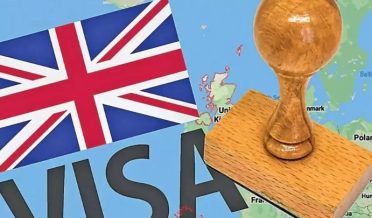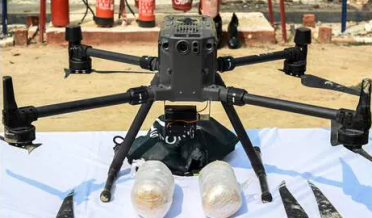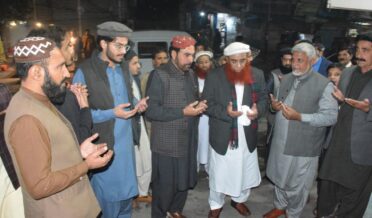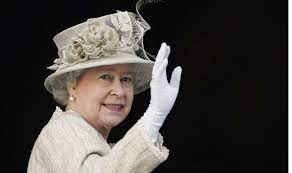The Khalistan movement is a Sikh separatist movement seeking to create a homeland for Sikhs by establishing a sovereign state, called Khalistan (Land of the Khalsa), in the Punjab region. The proposed state would consist of land that currently forms Punjab, India and Punjab, Pakistan. After several postponements, the “Punjab Referendum Commission has announced to hold the “Punjab Independence Referendum on October 31, 2021. The Commission has been appointed by the US-based Khalistani separatist group Sikhs for Justice. The Commission” consists of “non-aligned direct democracy experts” who are to organise and hold a referendum on whether Punjab should be independent. The referendum will start in London on October 31 and then take place in other countries, including the US, Canada, Australia, and the region of Punjab, the commission stated. Commission’ chairman M Dane Waters, based at the University of Southern California clarified that the commission’s role is to “help the SFJ conduct a referendum that is as consistent with international norms as possible”. He added, ‘Although a non-governmental and non-binding referendum, the result will be used as the basis for the Sikh community to request an official binding vote from the United Nations on establishing the Indian governed region of Punjab as an independent homeland for the indigenous people of whom Sikhs are the single largest group’. India is irked the date of referendum, October 31, as on this date anti-Sikh riots, following Indira Gandhi’s assassination by his bodyguards, erupted, leaving 3000 to 17000 Sikhs dead. India fought tooth and nail to forestall the intended referendum. It sent a dossier to the British government blaming Pakistan and Paramjit Singh Pamma, “The UK rejected the request.
SFJ has promised help and assistance for those seeking visas to come to London to attend the rally. The organisation has booked rooms in a hotel in South all for participants travelling from outside the UK. From Britain’s Green Party, which has a lone MP in Westminster, Caroline Lucas and George Galloway, a former MP and former broadcaster respectively, have registered their support for the rally. Lucas said, `Sikh people have a right to determine for themselves whether they want to establish an independent Punjabi state. Indian High Commission has planned a counter demonstration at the same venue few hours before the ‘Referendum 2020’ rally. India is worried that the referendum would open wounds of 1984 anti-Sikh riots. The riots resulted in genocide of thousands of Sikhs. Not only the Congress Party leaders like Sajan Kumar and Jagadish Tytler but also police colluded with the killers. India’s then foreign minister and later prime minister Manmohan Singh said , ‘If then home minister Narisamha Rao had paid to IK Gujarat’s suggestion to call in the army, the 1984 Sikh riots could have been avoided’.(1984 Sikh riots could have been avoided if Narrasimha Rao had listened to IK Gujaral: Manmohan Singh, India Today December 5, 2019).
Guru Gobind Singh asked Sikhs to adopt Khalsa way of life. At the gathering of 1699, Guru Gobind Singh founded the Khalsa Vani – “Waheguru ji ka Khalsa, Waheguru ji ki fateh“. He named all his followers with the title Singh, meaning lion. He also founded the principles of Khalsa or the Five ‘K’s, kara, kirpan, kachha, kais, and kanga (a wrist bracelet, underwear, long hair and a comb). The five K’s have spiritual connotation. Sikhs have a long history of fighting repression. In 1973, Akali Dal put forward the Anandpur Sahib Resolution to demand more autonomy to Punjab. It demanded that power be generally devolved from the Central to state governments. The Congress government considered the resolution a secessionist document and rejected it. Jarnail Singh Bhindranwale, a prominent Sikh leader of Damdami Taksal, then joined the Akali Dal to launch the Dharam Yudh Morcha in 1982 to implement the Anandpur Sahib resolution. Bhindranwale had risen to prominence in the Sikh political circle with his policy of getting the Anandpur Resolution passed. Others demanded an autonomous state in India, based on the Anandpur Sahib Resolution. India used iron fist tactics to gag the demand. The high-handed police treated the protesters (Dharam Yudh Morcha) as ordinary criminals. The Sikh youth retaliated by starting an insurgency. By 1983, the situation in Punjab was volatile. It was launched (1 June) “to remove him and the armed militants from the Golden Temple complex. On 6 June Bhindranwale died in the operation. The operation carried out in the temple caused outrage among the Sikhs and increased the support for Khalistan Movement. Four months after the operation, on 31 October 1984, Indira Gandhi was assassinated by her two Sikh bodyguards, Satwant Singh and Beant Singh. Public outcry over Gandhi’s death led to the killings of Sikhs in the ensuing 1984 anti-Sikh riots.
The ‘Punjab Independence Referendum’ organized by the Punjab Referendum Commission (PRC) to gauge support for Khalistan was underway at the Queen Elizabeth Conference Centre, Westminster London on Sunday, as throngs of British Sikhs lined up to have their voices heard. The PRC which has been appointed by the US-based Khalistani separatist group Sikhs for Justice (SFJ), had announced to hold the non-binding referendum earlier this month. The Commission consisting of “non-aligned direct democracy experts” are assigned with organizing and holding the referendum on whether Punjab should be independent. The referendum which started on Sunday 7th of November in London will also take place in other countries, including the US, Canada, Australia, and the region of Punjab, the commission stated. PRC chairman M Dane Waters, a political strategist, writer and direct democracy advocate clarified that the commission’s role is to “help the SFJ conduct a referendum that is as consistent with international norms as possible”.
 259
259






